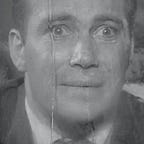High School and the Haze of Assumed Heterosexuality
Note: Spoilers for High School. The 2022 TV show, not like, the time period of your life.
High School, based on Tegan and Sara’s 2019 autobiographical book of the same name, is pretty unique among music biopics. The first season is set in 1996 and 97, which puts it many many years before Tegan and Sara recorded any of their best known music. Their early music is still good, sure, but their most iconic songs are still years off. This forces it out of the usual music biopic conventions. Sure, we get some songs, but they’re mostly prototypes of the songs that would be cleaned up for the release of Hey I’m Just Like You, which consisted of early material remastered for an album to coincide with the book.
The timeline doesn’t allow for Tegan to begin playing the driving guitar line from The Con, or for Sara to suggest that she’s walking with a ghost, it would feel inauthentic, contrived. And this, in turn, forces the show to do something that a lot of music biopics don’t do. It forces it to tell a story. A story about identity and queerness existing in the haze of compulsory heterosexuality that was the 90s, and how that haze cuts off forms of communications, even between queer people.
Take, for example, the earliest form of conflict in the series. Tegan and Sara have a longtime mutual friend, Phoebe, who Sara has begun dating (although neither girl will call it that). As a result the friendship has shifted; Phoebe no longer comes over to see Tegan and Sara, she comes to see Sara, and Tegan feels left out. But despite the fact that this is the easiest thing in the world to explain, especially since we know that Tegan is a lesbian as well (and even if you’re not a fan, and therefore hypothetically don’t know that, the show makes it clear quickly enough) neither girl can find it in them to make that leap, to explain “Phoebe is hanging out with me more because we’re making out.”
Tegan, on the other hand, has an even more damaging example of how the compulsory heterosexuality can harm queer relationships. As the series begins, Tegan grows close to another girl, a prototypical tough girl named Maya, and it’s very clear from very early on that she’s crushing on Maya. What gets gradually clearer as the season goes on, is that Maya is crushing on Tegan right back.
The mutual, but unspoken, crush leads the relationship into an agonizing back and forth, where both girls are doing their damndest to signal their desire, while leaving themselves enough plausible deniability to back out if they’re rejected. And that’s completely understandable on some level; If they put too much weight on this bridge they built between them, it might not only snap and destroy their friendship, but might lead to the other girl outing them to the rest of the students. The usual distress attached to rejection is coupled with a very raw fear of social pariahdom if their sexuality is known.
This becomes a painful dance of desire and denial, where both girls clearly want more, and Maya in particular needs Tegan to be there for her in ways that go beyond simple friendship, but cannot bring herself to verbalize those needs. She can call Tegan in a moment of vulnerability, clearly desperate for Tegan to be there for her, but can’t do more than stammer “Let’s hang out.” But just because those needs aren’t spoken doesn’t mean they aren’t real and that when they aren’t met she isn’t deeply hurt.
What might help them to verbalize these desires if they had the words, and it’s here that the words they need become conspicuous by their absence. The words for queerness (queer, gay, lesbian, bisexual) are never there. Oh people will reference it, but never name it. The twins’ mother will say she kissed a girl in college, but never use the word bisexual. Phoebe’s mother will catch her and Sara sleeping tangled up in each other in a way that is undeniably intimate, and disapprove, but she won’t say the word lesbian. The words for what the characters are, what they want, don’t seem to exist.
Well, except once. Towards the end of the show Patrick (the twin’s mother’s boyfriend), during an argument with Sara about her playing Nirvana, snaps that Kurt Cobain was “a fag.” And in response, Sara points out that people have said the same about her and Tegan, have said they’re “dykes.”
The words to describe homosexuality can exist in Calgary in 1997, but only the slurs, only the worlds hurled to hurt. Is it any wonder that the girls can’t find the words to describe themselves?
High School is a good show, probably even a great one. The writing is sharp, with complex engaging characters, even the adults who rarely get interiority in high school shows. The stakes are small scale and intimate, but taken seriously. The directing is often excellent, especially in how good Clea Duvall (who directed all but 2 episodes) is at isolating characters in the frame. The acting is great (the twins playing Tegan and Sara are excellent, and I genuinely don’t think Colbie Smulders has been better than she is here). And if you, like me, are a Tegan and Sara superfan, you’ve likely already seen it. But if the show has a utility, if it’s important outside simply being a good show, it’s a glimpse into how the world can look when seen through queer eyes trying to glimpse another queer person through the haze of presumed heterosexuality.
